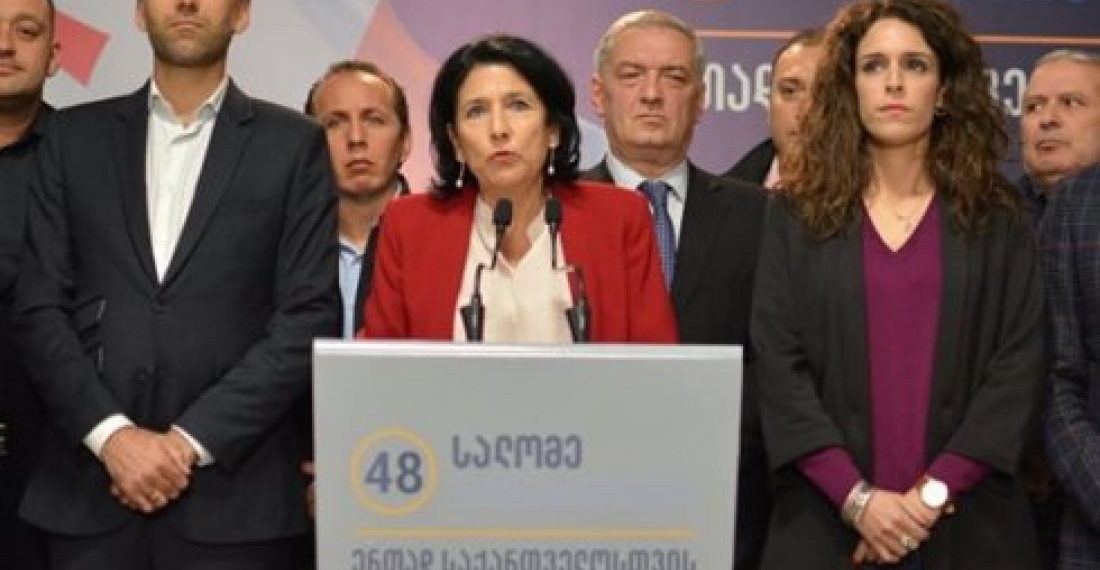A defiant Salome Zurabishvili says she will fight on and is determined to win in the second round of presidential elections in Georgia. Zurabishvili made a televised address after speculation throughout the day on Tuesday that she was about to withdraw her candidacy. Zurabishvili came first in Sunday's first round but failed to secure 50% of votes cast. The rumours were fuelled by the pro opposition Rustavi 2 TV station, which cited sourcers within the ruling party.
Zurabishvili dismissed the speculation: "They probably do not know me well. They do not know how stubborn I am, they do not know that I am ready to fight to the end for our people and our country," she said. "I am ready to compete because I have a faith in you ... and in your wisdom, I believe you know what you want for Georgia, I believe you know that today we are not making a choice between two candidates, or two parties - today we are making a choice on what kind of Georgia we want to have in the future".
In presidential elections held on Sunday, Salome Zurabishvili, backed by the ruling Georgian Dream (GD) party secured 38.64% of the voters, whilst Grigol Vashadze, supported by the opposition United National Movement (UNM) came a close second with 37.74%. A run-off is expected not later than 2 December.
Meanwhile the international community has given a largely positive evaluation of the election process so far, although a number of problems and shortcomings were highlighted by international observation missions.
Earlier this week the European Union gave its assessment of the elections. A statement issued by the spokesperson of the European External Action Service said that,
According to the preliminary conclusions of the OSCE/ODIHR Election Observation Mission, the elections were "competitive and professionally administered", giving Georgian voters a genuine voice. Some shortcomings were noted throughout the campaign and on the election day, notably instances of misuse of administrative resources, sharp polarisation of the private media, negative campaigning and harsh rhetoric. These shortcomings should be addressed based on the OSCE/ODIHR recommendations.
Ensuring high democratic standards throughout the entire electoral process, including the second round, remains key. It is important that all parties continue to adhere to democratic principles and to respect the will of the Georgian people.
The European Union stands by a democratic, stable and prosperous Georgia, including with a vibrant civil society. We look forward to strengthening further cooperation with Georgia to advance political association and economic integration and to deliver on the joint commitments under the Association Agreement.
source: commonspace.eu






